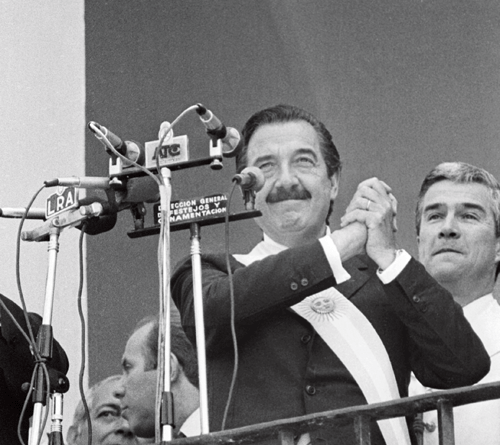Former Argentine President Raúl Ricardo Alfonsín, who guided his country through the transition from dictatorship to civilian government, passed away in March after a battle with lung cancer. Alfonsín, 82, was a lawyer, a passionate politician and a powerful speaker who risked danger and arrest to speak out against military rule.
A co-founder of the Permanent Assembly for Human Rights, which represented political resistance to the country’s military dictatorship, he served as president from 1983 to 1989. During his tenure, Argentina made historic advances in the rule of law and civil liberties, capped by Alfonsín’s decision to investigate disappearances during the military junta (1976 to 1983) through the National Commission on Disappeared People (CONADEP). The commission report, Nunca Más (Never Again), eventually led to members of the military junta being put on trial. But social unrest also marked his time in office—a result of economic troubles and hyperinflation—and Alfonsín was forced to resign six months prior to the end of his term. Despite the memory of his final days in office, the late president’s passion for democracy lives on, serving as an example for other nations in the hemisphere who followed Argentina’s difficult path toward democracy.






